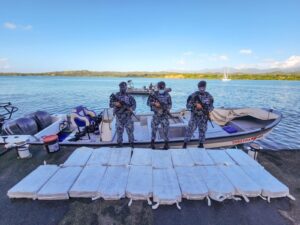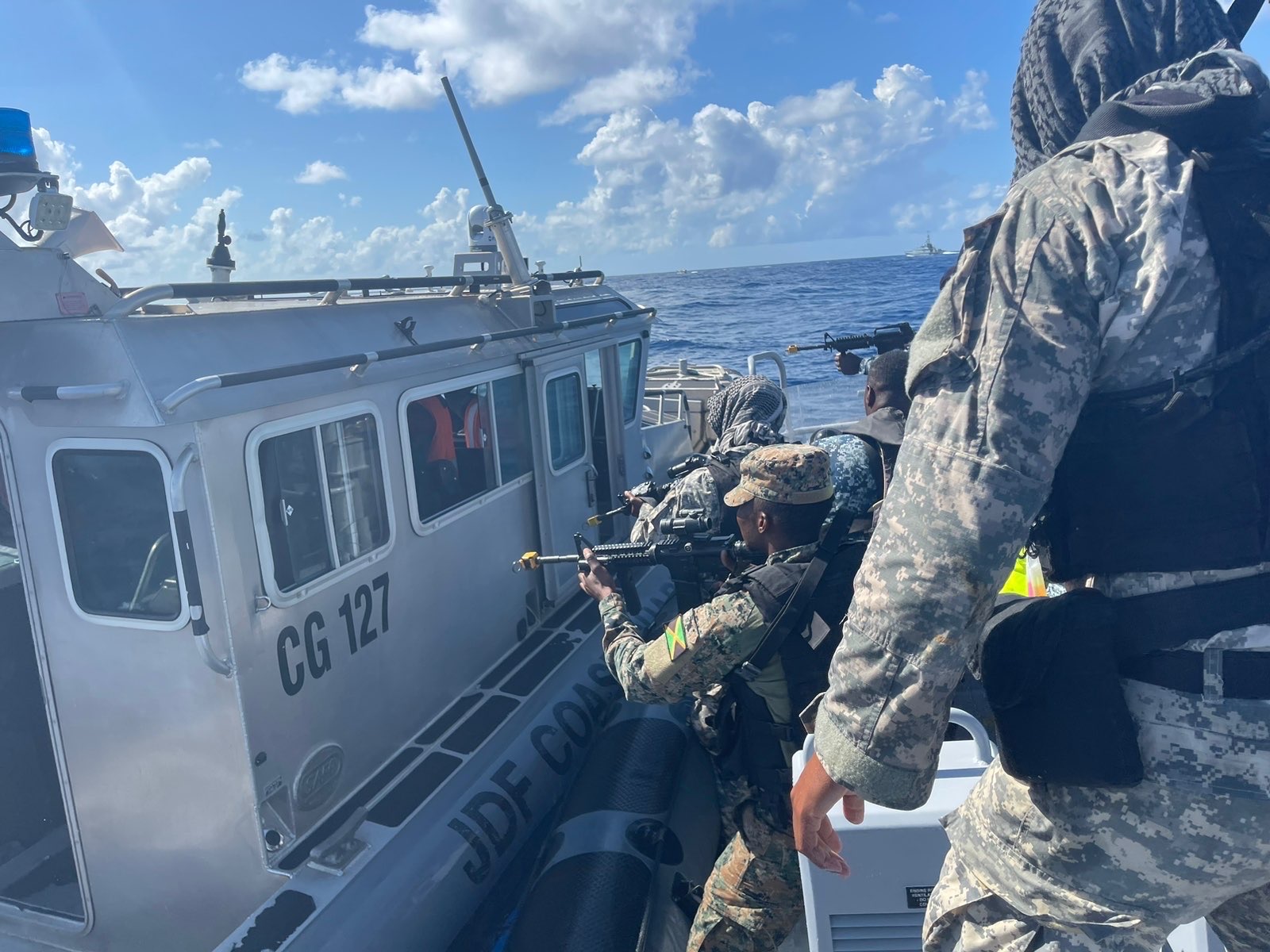The Jamaica Defence Force’s (JDF) Maritime, Air, and Cyber Command (MACC) kicked off the new year conducting a maritime training exercise in the Caribbean Sea off the coast of Jamaica together with the Dominican Armed Forces and the Royal Bahamas Defence Force. Exercise Event Horizon, carried out January 10-21, which also had the attendance of the Global Maritime Crime Programme of the United Nations Office on Drug and Crime, sought to strengthen operational readiness, operational coordination, and interoperability among participants.
Participating troops built up capabilities such as intelligence, surveillance, and reconnaissance; countering illicit trafficking; humanitarian assistance and disaster relief; maritime law enforcement; search and rescue; expeditionary logistics; and international force projection through the use of maritime and aerial assets, in combination with intelligence and special operations support, the JDF indicated.
“These [exercises] are key to achieving results at all levels and to increasing operational proficiency,” the Dominican Navy said in a statement.

January also marked the 4th anniversary of the activation of the MACC, which continues to deliver results on its mission to curb transnational and organized crime and to counter terrorism and emergent cyber threats. On January 14, for instance, the MACC collaborated with a wide-ranging multi-agency team to interdict a major shipment of some 1,500 kilograms of cocaine at the Kingston’s port — one of the largest seizures in the country’s history.
On December 26, the MACC recorded yet another narcotics haul, seizing nearly 500 kg of cocaine during an operation off Jamaica’s southeast coast. Several aircraft and maritime components from the JDF Air Wing and the JDF Coast Guard contributed to the interception and later boarding of a vessel that was believed to have departed Colombia with a crew of three Jamaican men, who were later arrested, the JDF said.
Months prior, in September, MACC teams, with support from U.S. authorities, discovered some 500 kg of cocaine at the Ian Fleming International Airport that were seemingly bound for Canada.
According to JDF Brigadier Roderick Williams, MACC commander, Jamaica has seen an uptick in the illicit trafficking of cocaine over the last year. “Jamaica’s geo-strategic realities continue to make us an attractive steppingstone for illicit flows originating in the south and destined for lucrative markets in the north”, Brig. Williams told Diálogo. “And what we are seeing here with these seizures is largely a result of the increased investment in our maritime domain awareness, intelligence and interdiction capabilities over the last seven years or so.”
While recent seizures might suggest that South American narcotrafficking organizations have ramped up their transshipment activities in the region, Brig. Williams is quick to point out that the MACC has also strengthened its capabilities to deter, detect, and interdict illicit flows.
“In addition to acquiring additional equipment and resources, there are also a number of other significant initiatives and capability enhancements on the horizon that will make illicit flows through Jamaica increasingly unattractive to smugglers,” Brig. Williams said.
Exercise Event Horizon was one such initiative.
“Exercise Event Horizon was highly successful,” Brig. Williams said, noting that the event met all set objectives and targets. “We intend to build on this success with the expansion of the exercise to include more of our domestic and regional partners for the next serial in January 2024. Together, these combined, joint, and interagency exercises will help to nurture and strengthen the necessary comprehensive, integrated, and multilateral approaches needed to address common transnational threats such as narcotrafficking and other safety and security threats facing our country.”









